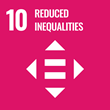
Project information
Networks and the Rule of Law: Uncovering Socio-Economic Outcomes
(NET-ROL)
- Project Identification
- 101177405
- Project Period
- 3/2025 - 2/2028
- Investor / Pogramme / Project type
-
European Union
- Horizon Europe
- Cluster 2 - Culture, Creativity and Inclusive Society
- MU Faculty or unit
- Faculty of Law
- Cooperating Organization
-
University Hamburg
Universiteit Leiden
- Responsible person Antoaneta Dimitrova
Institute of Public Affairs
University of Rennes 1
Central European University Private University
European Policy Institute Skopje
NET-ROL: ‘Networks and the Rule of Law: Uncovering Socio-Economic Outcomes’ is an innovative, multi-disciplinary collaborative research project of institutions from 8 countries (Austria, Czechia, France, Germany, Italy, Netherlands, North Macedonia, Poland) and scholars from different disciplines and sub-disciplines (economics, law, political science, network science). NET-ROL develops a conceptual framework theorizing the positive or negative role of networks impacting rule of law and socio-economic outcomes. It generates large-scale, historical and contemporary datasets relevant to the study of rule of law: on values and social norms, legislation, public spending and personal connections, judicial governance and decision-making. The approach to rule of law emphasizes the role of citizens, exploring networked coordination as a mechanism to halt weakening of rule of law. Building on EU’s definition of rule of law, NET-ROL analyzes networks in law-making, executive decision-making and the judiciary. For the judiciary, NET-ROL maps the interaction of rule of law and concentration of powers, analyzing the effect on formal and informal judicial and prosecutorial independence. Using state-of-the-art data techniques such as causal machine learning and multi-layer network analysis, the project generates original knowledge on causes of rule of law weakening and the impact on socio-economic outcomes such as growth, inequality, and trust.
The project’s innovative character stems from:
· The broad and interdisciplinary perspective on rule of law.
· The integration of different approaches studying the impact of networks on public goods.
· The gathering and analysis of new, actionable datasets.
· The use of innovative data science, econometric, network and text analysis techniques.
· The exploration of the conditions under which citizens defend the rule of law.
· The design of interventions supporting rule of law based on experimental data and input from stakeholders.
Sustainable Development Goals
Masaryk University is committed to the UN Sustainable Development Goals, which aim to improve the conditions and quality of life on our planet by 2030.








